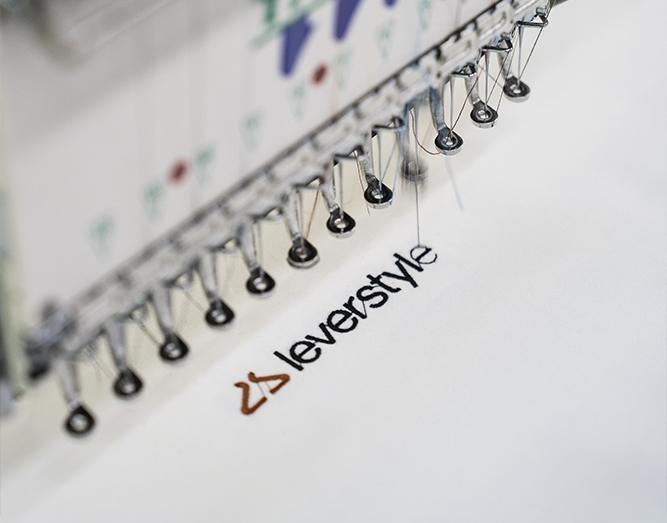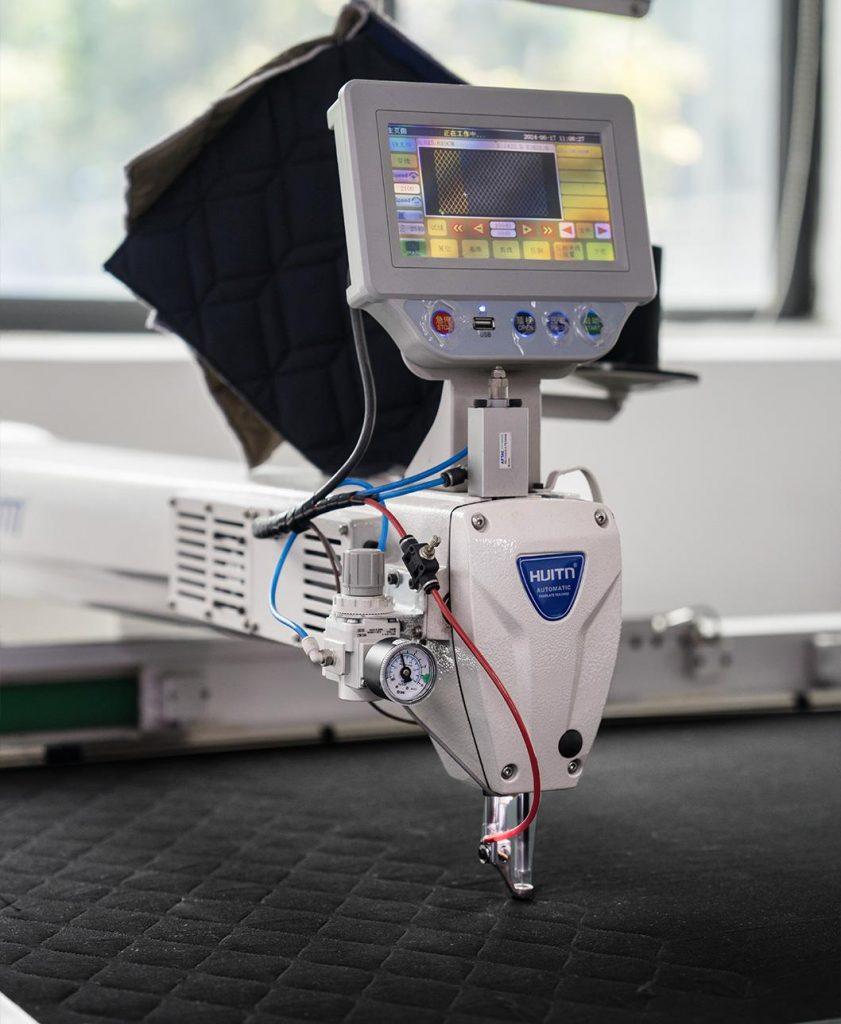Content Menu
● The Rise of Sustainable Yoga Clothes in the Market
● Our Commitment to Green Manufacturing
>> Eco-Friendly Material Sourcing
>> Low-Impact Dyeing and Finishing
>> Ethical Supply Chain and Fair Labor Practices
● Advanced Product Development for Performance and Sustainability
>> Innovation in Fabric Technology
>> Customization and Scalability
● Supply Chain Insights: Efficiency Meets Sustainability
● Market Leadership and Industry Impact
● Innovations in Sustainable Fabric Blends
● Lifecycle Analysis and Environmental Impact
● Consumer Education and Market Trends
● Future Directions in Sustainable Yoga Apparel
● FAQ
>> 1. What materials are commonly used in sustainable yoga clothes?
>> 2. How do low-impact dyes benefit sustainable yoga apparel?
>> 3. What certifications should I look for in sustainable yoga clothes?
>> 4. Can sustainable yoga clothes offer the same performance as traditional activewear?
>> 5. How does your company ensure ethical labor practices?
In today’s rapidly evolving market, sustainability is no longer a mere trend but a fundamental expectation, especially in the yoga apparel industry. As yoga practitioners deepen their connection with nature and mindfulness, the demand for eco-friendly yoga clothes has surged. Our company stands at the forefront of this green revolution, pioneering sustainable manufacturing practices that not only reduce environmental impact but also deliver superior quality and performance. This article explores how we lead the industry in sustainable yoga clothes through innovative materials, ethical supply chain management, advanced product development, and transparent manufacturing processes.

The Rise of Sustainable Yoga Clothes in the Market
Yoga clothes have traditionally been made from synthetic fibers such as polyester, nylon, and spandex—materials derived from petroleum that pose significant environmental challenges. These fabrics contribute to microplastic pollution and require extensive water and chemical usage during production. Recognizing these issues, the industry has shifted towards sustainable alternatives that align with the core values of yoga: harmony, balance, and respect for the planet.
Consumers today seek yoga apparel that combines comfort, durability, and eco-consciousness. This shift has driven brands to adopt organic cotton, bamboo fibers, recycled polyester, and innovative materials like TENCEL™ and hemp. These fibers are cultivated and processed with fewer chemicals, reduced water consumption, and lower carbon footprints, making them ideal for sustainable yoga clothes.
Our Commitment to Green Manufacturing
Eco-Friendly Material Sourcing
At the heart of our sustainable yoga clothes is a commitment to using only the highest quality eco-friendly materials. We source certified organic cotton grown without harmful pesticides or synthetic fertilizers, significantly reducing water usage compared to conventional cotton farming. Additionally, our yoga clothes incorporate recycled polyester made from post-consumer plastic bottles, diverting waste from landfills and reducing energy consumption during production.
We also utilize bamboo fibers, renowned for their natural antibacterial properties and rapid renewability. Our bamboo sourcing prioritizes transparent forest management and sustainable production processes to maximize environmental benefits.
Low-Impact Dyeing and Finishing
Traditional dyeing processes are notorious for water pollution and toxic chemical discharge. To mitigate this, our manufacturing employs low-impact, water-based dyes that minimize environmental harm and ensure safer working conditions. These dyes reduce water consumption and eliminate harmful substances, aligning with certifications such as OEKO-TEX Standard 100 and GOTS (Global Organic Textile Standard).
Ethical Supply Chain and Fair Labor Practices
Sustainability extends beyond materials to encompass social responsibility. We rigorously audit our supply chain to ensure fair labor practices, safe working environments, and fair wages. Our partnerships include Fair Trade-certified factories, guaranteeing that the people behind our yoga clothes are treated with dignity and respect.
We maintain full transparency with real-time production tracking, allowing clients to monitor every stage of manufacturing. This traceability reinforces our commitment to ethical sourcing and accountability.
Advanced Product Development for Performance and Sustainability
Innovation in Fabric Technology
Our R&D team continuously explores cutting-edge sustainable textiles that enhance performance without compromising eco-values. For example, we integrate TENCEL™ fibers, produced via a closed-loop process that recycles solvents and reduces waste, into our yoga clothes. These fibers offer superior moisture-wicking, breathability, and softness, improving wearer comfort during intense yoga sessions.
We also develop blends of organic cotton and recycled polyester that balance durability with environmental responsibility. These blends maintain stretch and shape retention, essential for yoga practice, while significantly lowering carbon footprints compared to virgin synthetics.
Customization and Scalability
Understanding the diverse needs of yoga apparel brands, we offer flexible manufacturing options including private labeling and custom designs. Our automated production lines enable rapid prototyping and scalable production with low minimum order quantities (MOQs), supporting startups and established brands alike.
This agility allows us to respond quickly to market trends, incorporating the latest sustainable fashion innovations into yoga clothes that resonate with consumers seeking style, comfort, and green credentials.
Supply Chain Insights: Efficiency Meets Sustainability
Our supply chain strategy integrates environmental stewardship with operational excellence. Key elements include:
– Closed-Loop Water Systems: We implement advanced water recycling technologies in our dyeing facilities, drastically reducing freshwater consumption and wastewater discharge.
– Carbon Emission Reduction: Through energy-efficient manufacturing processes and sourcing local raw materials where possible, we minimize CO₂ emissions associated with production and logistics.
– Waste Minimization: Post-industrial scraps are recycled or repurposed, and packaging is designed to be recyclable or compostable, reducing landfill contributions.
– Supplier Collaboration: We work closely with suppliers to ensure adherence to sustainability standards and continuous improvement, fostering a culture of environmental responsibility throughout the supply chain.
Market Leadership and Industry Impact
Our leadership in sustainable yoga clothes is reflected in our certifications, partnerships, and customer satisfaction. By aligning with global standards such as GOTS, Fair Trade, and OEKO-TEX, we provide assurance of product integrity and eco-compliance.
We actively participate in industry initiatives to reduce textile waste and promote circular fashion, including garment recycling programs and cradle-to-cradle product design. Our efforts inspire other manufacturers and brands to elevate their sustainability practices, contributing to a greener yoga apparel industry.
Innovations in Sustainable Fabric Blends
Our commitment to innovation extends to developing advanced sustainable fabric blends that optimize both performance and environmental impact. By combining organic cotton with recycled polyester and natural fibers like hemp, we create yoga clothes that offer enhanced durability, breathability, and stretch. These blends are engineered to maintain their shape and comfort over time, reducing the need for frequent replacement and thus minimizing waste.
Additionally, we explore bio-based fibers derived from renewable resources, which further reduce reliance on fossil fuels and lower carbon footprints. This continuous innovation ensures our yoga clothes meet the evolving demands of eco-conscious consumers while delivering superior quality.

Lifecycle Analysis and Environmental Impact
Understanding the full lifecycle of yoga clothes is crucial to our sustainability strategy. We conduct comprehensive lifecycle analyses (LCA) to assess the environmental impact from raw material sourcing through manufacturing, distribution, use, and end-of-life disposal. This holistic approach allows us to identify areas for improvement, such as reducing water and energy consumption, minimizing waste, and enhancing recyclability.
Our yoga clothes are designed with circularity in mind, incorporating materials that can be recycled or composted at the end of their useful life. By transparently sharing LCA results with our clients, we empower them to make informed decisions and promote responsible consumption.
Consumer Education and Market Trends
Educating consumers about the benefits and importance of sustainable yoga clothes is a key part of our mission. We provide detailed information on material sourcing, manufacturing processes, and certifications to build trust and awareness. Market trends indicate a growing preference for transparency and ethical production, with consumers increasingly valuing brands that demonstrate genuine commitment to sustainability.
We actively engage with the yoga community through workshops, social media, and collaborations to foster a culture of mindful consumption. This education not only drives demand for sustainable yoga clothes but also encourages lifestyle choices that support environmental stewardship.
Future Directions in Sustainable Yoga Apparel
Looking ahead, we are focused on pioneering new technologies and practices that will shape the future of sustainable yoga apparel. This includes exploring biodegradable fabrics, waterless dyeing techniques, and energy-efficient manufacturing innovations.
We are also investing in blockchain technology to enhance supply chain transparency and traceability, ensuring every step meets our rigorous sustainability standards. Collaborations with research institutions and industry partners enable us to stay at the cutting edge of sustainable fashion.
Our vision is to create yoga clothes that not only meet the highest performance standards but also contribute positively to the planet and society for generations to come.
Conclusion
Sustainable yoga clothes represent the future of activewear—where performance meets purpose, and fashion respects the planet. Our company leads this transformation by combining technical expertise, innovative product development, and a transparent, ethical supply chain. Choosing our yoga clothes means embracing quality, comfort, and a commitment to environmental stewardship.
We invite you to join us on this journey towards a sustainable yoga lifestyle. Whether you are a retailer, brand owner, or consumer, connect with us to discover how our green manufacturing solutions can elevate your yoga apparel offerings while making a positive impact on the planet.
Contact us today to learn more about our sustainable yoga clothes and how we can support your brand’s green ambitions!

FAQ
1. What materials are commonly used in sustainable yoga clothes?
Sustainable yoga clothes typically use organic cotton, bamboo fibers, recycled polyester, hemp, and TENCEL™. These materials are renewable, biodegradable, and produced with lower environmental impact compared to conventional fabrics.
2. How do low-impact dyes benefit sustainable yoga apparel?
Low-impact dyes use fewer chemicals and less water, reducing pollution and health risks for workers and consumers. They help maintain the eco-friendliness of yoga clothes throughout the manufacturing process.
3. What certifications should I look for in sustainable yoga clothes?
Look for certifications such as GOTS (Global Organic Textile Standard), Fair Trade, OEKO-TEX Standard 100, and B Corp. These indicate adherence to environmental and social responsibility standards.
4. Can sustainable yoga clothes offer the same performance as traditional activewear?
Yes. Advances in fabric technology allow sustainable yoga clothes to provide excellent moisture-wicking, stretch, durability, and comfort, meeting or exceeding the performance of conventional yoga apparel.
5. How does your company ensure ethical labor practices?
We partner exclusively with Fair Trade-certified factories and conduct regular audits to ensure fair wages, safe working conditions, and workers’ rights protection throughout our supply chain.
Hot Tags:
Sustainable Yoga Clothing, Green Yoga Apparel, Eco Yoga Clothes, Ethical Yoga Manufacturing, Sustainable Activewear Brands, Organic Workout Wear, Recycled Yoga Fashion, Low Impact Yoga Apparel, Climate-Friendly Fitness Wear, Sustainable Yoga Industry Leader
